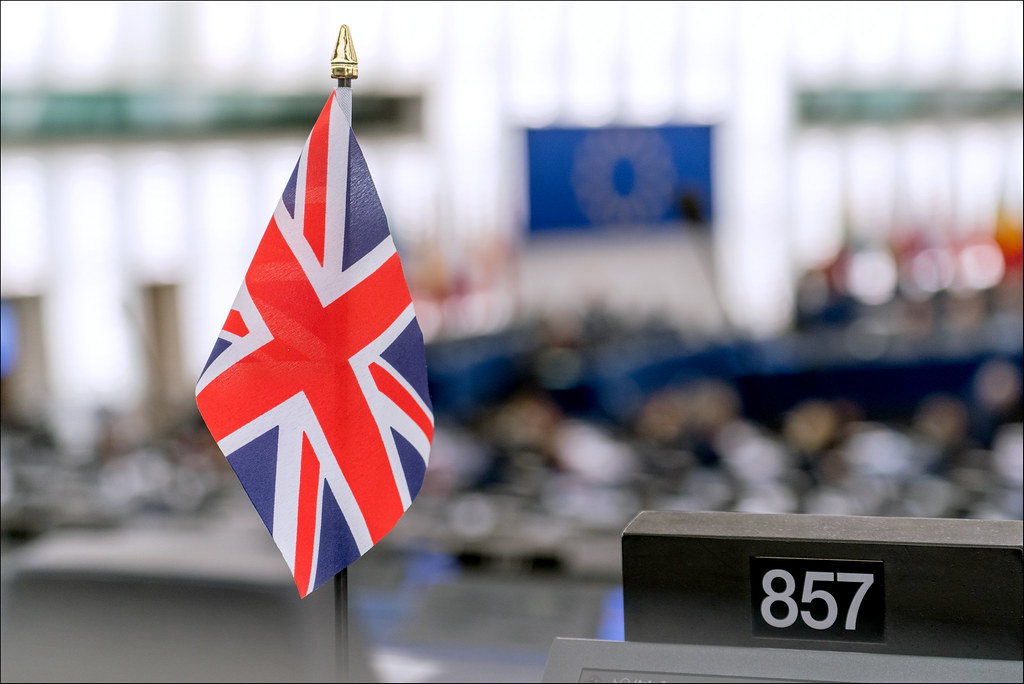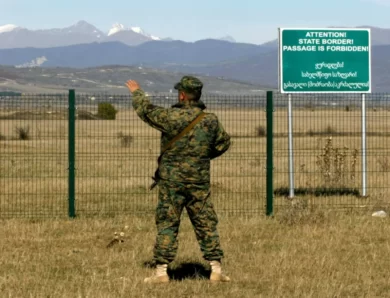
GENDER IN INTERNATIONAL NEGOTIATIONS: A CASE STUDY ON BREXIT
By Sara Fattori
Introduction
Among the major negotiations carried by the European Union in recent times, a large space has been dedicated to Brexit, an event and a process which has highly impacted the present and future of the Union.
When it comes to negotiation analysis, several transversal aspects are often studied and mentioned by scholars: culture, symmetries in power, leadership, etc. Gender is rarely one of them. However, resolution 1325 adopted by the United Nations Security Council already in 2000 acknowledged the importance of the role of women in negotiation, demanding the increase of women in such processes.[1] The resolution assumed that “women bring particular values to the negotiation table given their unique life and socialization experiences, and that these experiences have been habitually excluded from the public sphere because of the exclusionary nature of international negotiations”. [2] Women between 2015 and 2019 made up only 14% of negotiators around the world.[3]
To what extent is gender a key element in negotiations and what was its role in the EU-BREXIT negotiation process?
Although literature can be easily found on gender and negotiations, it is rather complicated to come across theories applied to specific case studies. It becomes even harder when the case study is as recent and complex as Brexit.
Moreover, gender is often a difficult aspect to analyze in negotiations. On the one hand, providing generalizations on women would make them sound like a homogenous group. On the other hand, studies reveal the existence of differences between women and men that should be considered. It is important therefore to try to refer to both these aspects without excessively base any assumptions on exclusively one of them, but rather engaging in critical reflections. First of all, I will provide definitions of the terms that will guide my analysis: gender, negotiation and Brexit. Secondly, I will look over a series of theories that have been applied to the relations between gender and negotiations. Finally, I will analyze how gender elements can apply to the Brexit negotiations.
Definitions
If sex is defined as biological characteristics differentiating men and women, gender is rather associated with cultural and psychological characteristics. It is seen as a variable social category reflecting different roles occupied in society.[4] In the field of negotiation analysis, the two terms have been used indistinctively, however today we tend to prefer the term “gender” over sex. In fact, gender in negotiation is not anymore only about counting the number of women sitting at the table, but it is also about understanding and explaining stereotypes playing against them and determining the way they behave.
According to Zartam who provided one of the most widely cited definitions: “negotiation is a process of combining conflicting positions into a common position, under a decision rule of unanimity, a phenomenon in which the outcomes are determined by the process”.[5] The process, however, can be influenced by the context in which the negotiations occur (diplomatic politics)[6] as well as by the identity of the negotiators (identity politics).[7] I will observe how gender is shaped by the context and how it determines the identity of the negotiators, thus playing a role in the whole process of negotiations. When it comes to Brexit, I will focus on the general whole period which goes from the beginning of the negotiations under Theresa May in 2017 until the end of 2020. I will pay particular attention to the negotiating task forces on both sides: the EU and the UK, without entering too much in detail for which I would not have neither space nor data available yet.
A theoretical approach to gender in international negotiations
Rubin and Brown were the first to study the impact of gender in negotiations already in 1975. Their studies revealed that women negotiate in a more cooperative way compared to men.[8] Following this, other scholars have studied behaviors and attributes by looking at individual differences and found common trends in the way women and men negotiate[9], while treating these trends as predictors of behavior.[10] For instance, women seem to be less likely to initiate negotiations especially with male counterparts [11]; men’s economic outcomes are generally higher than women’s, which is also linked to the assumption that women are more likely to set lower goals.[12] Among other characteristics, men are also perceived to be more unwilling to exchange information and generally make ambitious first offers but few small concessions during negotiations.[13] Based on these findings, scholars have outlined different styles of negotiation depending on gender. The masculine style is believed to be assertive, competitive, and analytical. [14] Male counterparts would tend to show leadership abilities and a certain desire of domination. They would also behave in a more rational way, while being protective of their own interests. The feminine style, on the other hand, is more compassionate, intuitive, and collaborative. Women in negotiations are generally more sensitive, warm and gentle, as well as emotional and accommodating. A third style of behavior is defined as androgynous as it englobes characteristics from both the masculine and feminine styles.[15] Of course, those that I mention are purely stereotypes as they do not define every man or woman in negotiations, yet they provide a sense of how women and men generally behave or are expected to behave according to social constructions. Until recently, attributes associated with men were also characteristics of a good negotiator. On the contrary, those associated with women determined “weak” negotiators, probably one of the reasons why women have been excluded from negotiations for a long time. Authors Kolb and Williams specify: “the effective negotiator turns out to look remarkably like a man: independent, self-confident, active, objective, and unruffled by pressure. Thus, men are often perceived as better negotiators than women”.[16] This also determines that being a man is enough to be acknowledged as an effective counterpart, whereas stereotypes behind women put further pressure on them to actually show that they deserve their place at the negotiating table.[17]
Some feminist positions discredited the idea of different personalities based on gender, as this contradicts the ideology behind gender equality.[18] Today, feminist theories accept diversity between men and women and prefer to use the term “equity” rather than “equality”. They also aim to understand what’s behind differences and behaviors. In fact, gender stereotypes become activated when individuals negotiate,[19] for instance through the expectations phenomenon or the acquisition by women of masculine attributes, which can ultimately influence the process and the outcome of negotiations by reiforcing those prejudices.. In the first case, individuals, afraid of being evaluated according to gender stereotypes, are unconsciously led to behave in a stereotyped way. Negotiation performance is therefore affected by a dynamic of fulfilled expectations.[20] In the second case, to be accepted by men, women adopt masculine characters, behaving for instance, in a more authoritarian way.
In more recent analyses, stereotypes associated with male counterparts and that used to characterize men as effective negotiators have been criticized by scholars, opening space for different perceptions of performances. For instance, many negotiations have relied on a competitive approach generating mistrust of the other and desire to dominate, eventually resulting in a zero-sum-game. Lempereur and Colson invite negotiators to prioritize a predominantly cooperative approach that would instead allow win-win situations.[21] Brunazzo and Settembrini also point out that negotiations should not always be confrontational but privilege cooperative approaches mostly when ethnic, cultural or economic differences exist among negotiators.[22] Finally, a new tendance to emphasize the positivity of some of those stereotypes that traditionally belonged to women, first and foremost empathy, has led to a new interpretation of effective negotiators and is helping women at the bargaining table.[23] Today in the analysis of the role that gender plays in negotiations, the attention is focused on the context in which negotiations occur taking into account the interests, what is at stake, the actors, and the communication method. Furthermore, intersectional dimensions are included in the analysis as the identity of negotiators is not shaped exclusively by their gender but also by their religion, ethnicity, age and sexual orientation.[24]
The impact of gender on Brexit negotiations
What does all of this have to do with Brexit? For scholars Guerrina, Wright and Haastrup Brexit is one of the last examples of marginalization of gender concerns in negotiations, as gender mainstreaming has been treated in a superficial and fragmented way before and during the process.[25] Brexit is also a good case study to apply the new interpretation of negotiating behaviors as well as to analyze both the identity of negotiators and the context including interests, actors and communication methods.
First of all, the UK and the EU have quite different backgrounds concerning gender in policy making. While the EU and some of its members have supported a feminist foreign policy and carried out several Gender Action Plans, the UK, since the Brexit campaign, has exploited gender stereotypes to build its image as a “masculinized” power and to promote the idea of a strong “Global Britain”.[26] One could possibly remember the slogan “Get Brexit Done” appearing on the digger driven by Boris Johnson while crashing the wall, as an image of the 2019 UK General Elections.[27] Yet, references to hyper masculinity not only characterized the Brexit campaign but accompanied the whole negotiation process. It should not be a surprise then that when the task force from the UK was presented in 2017 only one woman was included among the nine negotiators. From the UK’s point of view, the negotiations are set out to be “confrontational, with traditionally masculine traits, as the process is supposed to produce ‘winners’ and ‘losers’ ”.[28] The quasi-total absence of women on the UK’s side reflects an implicit (or not so implicit) bias and the current perpetuation of gender stereotypes. The negotiations clearly started as a zero-sum-game in which there could be either a deal (May’s deal) or no deal at all, while cooperation and compromise seemed to be avoided at all costs: unsurprisingly those are characters often associated with women.[29] It is curious, however, to notice that negotiations were not very different under May or under Johnson. Michel Barnier defines May as tough and determined to create a hostile environment[30], one may argue that this might be due to her approach to gender stereotypes and supposedly unconscious acquisition of masculine characters including authoritarian leadership, something that has been recognized as a recurrent behavior in theories of gender and negotiations.[31] This strategy however, contrasts with the UN Women Peace and Security Agenda which outlines the importance of women’s complementary skills and experiences to men that would help achieve more effective and long-lasting agreements.[32] The leadership position exercised by May could also be analyzed following the “glass cliff” concept according to which women tend to be placed in leadership positions during difficult times because they are regarded as less likely to take risks and demonstrate better ability to deal with such difficulties. On the other hand, men tend to be placed in power at times of success. All of this contributes to make criticism circulate wider when women are governing (such as the harsh criticism received by May for her work on the Withdrawal Agreement, that was not so different from Johnson’s after all), increasing gender bias and discrimination in politics.
Prime Minister Theresa May at the European Parliament
Copyright Euorpean Union 2019, Source: EP
Even with a female Prime Minister, however, headlines have been dominated by male figures (Michel Barnier, David Frost, Michael Gove, and Maroš Šefčovič), although the EU task force was better balanced as Barnier chose Sabine Weyand and Stéphanie Riso at the head of the team, aiming to send an “immediate signal within and outside the Commission of a competent and professional team”.[33]
Michel Barnier and Commission Vice-President Frans Timmermans, 2019
Copyright: European Union 2019, source: EP
In any case, the number of women sitting at the table is not all that matters, but it is definitely a first indicator of how important gender equality is perceived by the negotiating parties. According to the European Network for Equality Between Women and Men, women contribute not only symbolically by their presence but also concretely, by their attitude, to the decision-making process in negotiations while reducing risk-taking.[34] Moreover, the content of the agreement can also be influenced by the presence, or absence of women. Women’s participation in negotiations elevates the probability that gender-sensitive language and provisions are discussed and incorporated in the agreements.[35] In the case of Brexit, the limited place of women has represented a risk of excluding their voice from the conclusions on security and economic well-being, affecting British women overall. Since the UK relied on the EU law for most of women’s rights protections including employment and anti-discrimination, there was a chance that Brexit would end up undermining women’s rights. According to the literature, men are less likely to notice when something could harm women[36], while experience suggests that women are just as capable as men in negotiating[37] and should not therefore be left apart. Indeed, Brexit negotiations focused on traditional “high-politics issues” such as trade, citizens’ rights and the question of Northern Ireland and Scotland, avoiding any mention of the gender dimension that these issues all present. Once again, the presence of a female Prime Minister for some parts of the negotiations and the EU’s commitment to gender mainstreaming (Gender Action Plan 2016-2020) did not manage to mitigate the gender bias in the negotiations and did not prevent the Brexit negotiations from neutralizing gender almost completely. The outcome of the negotiations was especially detrimental for women of color and ethnic minorities as at any time fight against discrimination was dealt with, the negotiators based themselves rather on nationality than on gender or race.
In addition, the fact that the Brexit negotiations happened “behind closed doors” makes it particularly difficult for us to obtain detailed information on the process and content discussed, while this contributes to hiding the gendered nature of institutions. Even civil society organizations or the Committee on Women’s Rights and Gender Equality were rarely allowed to intervene in the decision-making processes by scrutiny or advocacy, which further increased marginalization of gender concerns in the negotiations.[38]
Finally, if several of the characteristics I have noticed characterizing Brexit negotiations were associated with masculine behavior, such as desire of domination, assertiveness and major risk-taking, one can deduce that hostilities between the EU and the UK’s task forces could have been avoided by feminizing the process. Indeed, more empathy, cooperation and emotional intelligence on both sides, and particularly on the British side, would have reduced the numerous tensions and deadlocks that were instead easily generated. In this view, feminization should be measured “not just through the numbers or the filling of quotas, but through the implementation of women’s attitudes, interests and perspectives”.[39]
Conclusion
To conclude, by analyzing gender and Brexit I have noticed that the number of women is still limited in important positions of negotiations like Brexit. Yet, this is not just an issue of quotas. Even the EU, with its commitment to gender mainstreaming and gender equality strategy and a more balanced number of women in the team, eventually failed to integrate a gendered approach to the negotiations. The dangerous lack of women’s interests represented at the table, as well as the quasi-total absence of diversity in behaviors and viewpoints characterized the marginal role attributed to gender.
In 1970, the UK sent an all-men task force to negotiate access to the European Community while in most recent times, with Brexit, only one woman was sitting on the British side of the table of negotiations. Following this rhythm, we would have to wait for 188 years before reaching equality of representation between women and men within international negotiating teams.[40] In order to shift this trend, overcome gender stereotypes, fill gender quotas and advocate for the interests of under-represented groups (like women), it is important for new policy-makers and negotiators to change their approach and further consider how gender can be a key element in negotiations.[41] A different interpretation of gender attitudes, including positive considerations of feminine characters (e.g. empathy and emotional intelligence) could help reduce hostilities and deadlocks. Even if minor, somehow subtle, marginalized and fragmented, gender did play a role in the Brexit negotiations, hopefully one that will be increasingly acknowledged in the next negotiations to avoid repeating the same mistakes and make negotiations a more inclusive and a less hostile process.
Sara Fattori
Bibliography
Aggestam, Karin, and Ann Towns. “Review -Gendering Diplomacy and International Negotiation Written by Dana Cooper Review”. E-International Relations, 2018.
Barnier, Michel. My Secret Brexit Diary. 1st ed. 2021. Reprint, Wiley, 2021. https://www.perlego.com/book/2963786/my-secret-brexit-diary-pdf.
Barr, Heather. “Brexit without Women.” Human Rights Watch, June 21, 2017, accessed 10 November 2021. https://www.hrw.org/news/2017/06/21/brexit-without-women#.
Benharda, Imen. “Perspectives Sur l’Ordre Négocié Genré et Stéréotypes de Genre Dans La Recherche En Négociation. Introduction à l’Entretien Avec Deborah Kolb.” De Boeck Supérieur | “Négociations” 1, no. 23 (2015): 62–72.
Bowles, Hannah Riley, and Kathleen L. McGinn. “Gender in Job Negotiations: A Two-Level Game.” Negotiation Journal 24, no. 4 (2008): 393–410. https://doi.org/10.2139/ssrn.1132784.
Boyer, Mark A., Brian Urlacher, Natalie Florea Hudson, Anat Niv-Solomon, Laura L. Janik, Michael J. Butler, Scott W. Brown, and Andri Ioannou. “Gender and Negotiation: Some Experimental Findings from an International Negotiation Simulation.” International Studies Quarterly 53, no. 1 (March 2009): 23–47. https://doi.org/10.1111/j.1468-2478.2008.01522.x.
Brunazzo, Marco and Pierpaolo Settembri. Experiencing the European Union: Learning How EU Negotiations Work through Simulation Games. Soveria Mannelli: Rubbettino Editore, 2012, 23-41; 75-92.
Cappart, Marie. “Brexit: Les Femmes et Les Minorités Fragilisées [Brexit: Women and Undermined Minorities].” RTBF Info, November 14, 2019, accessed 12 November 2021. https://www.rtbf.be/info/dossier/les-grenades/detail_brexit-les-femmes-et-les-minorites-fragilisees-cno?id=10359845.
Considère-Charon, Marie-Claire. “La Négociation Post-Brexit : Un Chemin Semé D’embûches [Post-Brexit Negotiation: A Path Full Of Pitfalls].” Politique Étrangère Été, no. 2 (2020): 129. https://doi.org/10.3917/pe.202.0129.
Druckman, Daniel. “Negotiation”, in The International Encyclopedia of Peace, edited by Young, Nigel. New York, NY: Oxford University Press, 2010, 453-458.
Dryer, Harvey. “An Introduction to Diplomacy: The Role of Gender in Brexit Negotiations.” European Student Think Tank, November 18, 2020, accessed 10 November 2021. https://esthinktank.com/2020/11/18/an-introduction-to-diplomacy-the-role-of-gender-in-brexit-negotiations/.
Eriksson, Karin Hederos, and Anna Sandberg. “Gender Differences in Initiation of Negotiation: Does the Gender of the Negotiation Counterpart Matter?” Negotiation Journal 28, no. 4 (September 26, 2012): 407–28. https://doi.org/10.1111/j.1571-9979.2012.00349.x.
Fischer-Lokou, Jacques, and Nicolas Gueguen. “Négociation et Genre : L’approche ‘Contextuelle’ En Psychologie Sociale [Negotiation and Gender: the “Contextual Approach In Social Psychology].” Négociations 23, no. 1 (2015): 93. https://doi.org/10.3917/neg.023.0093.
Guerrina, Roberta, Katharine Wright, and Toni Haastrup. “Living up to the Women, Peace and Security Agenda? Gender Must Be a Core Element of Brexit Negotiations.” LSE BREXIT, February 19, 2020, accessed 10 November 2021. https://blogs.lse.ac.uk/brexit/2020/02/19/living-up-to-the-women-peace-and-security-agenda-gender-must-be-a-core-element-of-brexit-negotiations/.
Guerrina, Roberta. “Hyper-Masculinity in Brexit Has Limited Opportunities to Find Alternative Ways Forward.” inews.co.uk, March 28, 2019, accessed 22 November 2021. https://inews.co.uk/opinion/comment/brexit-hyper-masculinity-limited-opportunities-alternative-ways-forward-272145.
Hopmann, P. Terrence. The Negotiation Process and the Resolution of International Conflicts. Columbia, SC: University of South Carolina Press, 1996.
Kolb, Deborah M. “Too Bad for the Women or Does It Have to Be? Gender and Negotiation Research over the Past Twenty-Five Years.” Negotiation Journal 25, no. 4 (October 2009): 515–31. https://doi.org/10.1111/j.1571-9979.2009.00242.x.
Kolb, Deborah M., and Judith Williams. 2000. The shadow negotiation: how women can master the hidden agendas that determine bargaining success. New York: Simon & Schuster, 28-29.
Lempereur, Alain and Aurélien Colson. The First Move. New York, NY: Wiley, 2010, 11-27.
Mazei, Jens, Alfred Zerres, and Joachim Hüffmeier. “Masculinity at the Negotiation Table: A Theory of Men’s Negotiation Behaviors and Outcomes.” Academy of Management Review 46, no. 1 (January 2021): 108–27. https://doi.org/10.5465/amr.2017.0570.
Mazei, Jens, Joachim Hüffmeier, Philipp Alexander Freund, Alice F. Stuhlmacher, Lena Bilke, and Guido Hertel. “A Meta-Analysis on Gender Differences in Negotiation Outcomes and Their Moderators.” Psychological Bulletin 141, no. 1 (2015): 85–104. https://doi.org/10.1037/a0038184.
O’ Brian, Charlotte. “There’s Only One Woman on the UK Brexit Negotiating Team – Here’s Why That Matters.” The Conversation, August 31, 2017, accessed 11 November 2021. https://www.equaltimes.org/there-s-only-one-woman-on-the-uk#.YYuhS5NKh0s.
Paddock, Elizabeth, and L Kray. “The Role of Gender in Negotiation.” Negotiation Excellence: Successful Deal Making. Research Collection Lee Kong Chian School Of Business., 2011. https://ink.library.smu.edu.sg/lkcsb_research/3176.
Putnam, Linda L. “Discourse analysis: Mucking around with negotiation data.” International Negotiation, 10, 17-32 (2005).
Schneiker, Andrea. “The UN and Women’s Marginalization in Peace Negotiations.” International Affairs 97, no. 4 (July 2021): 1165–82. https://doi.org/10.1093/ia/iiab068.
Smith, Jessica. “Bulldozing Brexit: Masculine Imagery Dominated Both Boris Johnson and Jeremy Corbyn’s 2019 General Election Campaigns.” British Politics and Policy at LSE, November 11, 2021, accessed 22 November 2021. https://blogs.lse.ac.uk/politicsandpolicy/bulldozing-brexit-2019-masculine-imagery/.
Zartman, I. William. Negotiation and Conflict Management. Routledge, 2009.
Zartman, I. William, ed. “Negotiating identity: From metaphor to process.” International Negotiation (special issue), 6(2) (2001).
[1] Andrea Schneiker, “The UN and Women’s Marginalization in Peace Negotiations,” International Affairs 97, no. 4 (July 2021): 1165.
[2] Mark A. Boyer et al., “Gender and Negotiation: Some Experimental Findings from an International Negotiation Simulation,” International Studies Quarterly 53, no. 1 (March 2009): 24.
[3] Schneiker, op.cit., 1165.
[4] Deborah M. Kolb, “Too Bad for the Women or Does It Have to Be? Gender and Negotiation Research over the Past Twenty-Five Years,” Negotiation Journal 25, no. 4 (October 2009): 517.
[5] William Zartman Negotiation and Conflict Management. Routledge, 2009.
[6] Terrence O. Hopmann, The Negotiation Process and the Resolution of International Conflicts. Columbia, SC: University of South Carolina Press, 1996.
[7] William Zartman, ed. “Negotiating identity: From metaphor to process.” International Negotiation (special issue), 6(2) (2001).
[8] Imen Benharda, “Perspectives Sur l’Ordre Négocié Genré et Stéréotypes de Genre Dans La Recherche En Négociation. Introduction à l’Entretien Avec Deborah Kolb.,” De Boeck Supérieur | “Négociations” 1, no. 23 (2015): 69.
[9] Kolb, op.cit., 518.
[10] Karin Hederos Eriksson and Anna Sandberg, “Gender Differences in Initiation of Negotiation: Does the Gender of the Negotiation Counterpart Matter?,” Negotiation Journal 28, no. 4 (September 26, 2012): 409.
[11]Ibid., 410.
[12] Kolb, op. cit., 518.
[13] Jens Mazei, Alfred Zerres, and Joachim Hüffmeier, “Masculinity at the Negotiation Table: A Theory of Men’s Negotiation Behaviors and Outcomes,” Academy of Management Review 46, no. 1 (January 2021): 115.
[14] Kolb, op. cit., 520.
[15] Elizabeth Paddock and L. Kray, “The Role of Gender in Negotiation,” Negotiation Excellence: Successful Deal Making. (Research Collection Lee Kong Chian School Of Business., 2011), 5.
[16] Deborah M. Kolb and Judith Williams. 2000. The shadow negotiation: how women can master the hidden agendas that determine bargaining success. New York: Simon & Schuster. 28-29.
[17] Schneiker, op.cit., 1180.
[18] Jacques Fischer-Lokou and Nicolas Gueguen, “Négociation et Genre : L’approche ‘Contextuelle’ En Psychologie Sociale,” Négociations 23, no. 1 (2015): 94.
[19] Paddock, op cit., 8.
[20] Hannah Riley Bowles and Kathleen L. McGinn, “Gender in Job Negotiations: A Two-Level Game,” Negotiation Journal 24, no. 4 (2008): 400.
[21] Alain Lempereur and Aurélien Colson. The First Move. New York, NY: Wiley, 2010, 16.
[22] Marco Brunazzo and Pierpaolo Settembri. Experiencing the European Union: Learning How EU Negotiations Work through Simulation Games. Soveria Mannelli: Rubbettino Editore, 2012, 76.
[23] Paddock, op cit.,14.
[24] Kolb, op cit., 520.
[25] Roberta Guerrina, Katharine Wright, and Toni Haastrup, “Living up to the Women, Peace and Security Agenda? Gender Must Be a Core Element of Brexit Negotiations,” LSE BREXIT, February 19, 2020, accessed 10 November 2021.
[26] Ibid.
[27] Jessica Smith, “Bulldozing Brexit: Masculine Imagery Dominated Both Boris Johnson and Jeremy Corbyn’s 2019 General Election Campaigns,” British Politics and Policy at LSE, November 11, 2021, accessed 22 November 2021.
[28] Roberta Guerrina, “Hyper-Masculinity in Brexit Has Limited Opportunities to Find Alternative Ways Forward,” inews.co.uk, March 28, 2019, accessed 22 November 2021.
[29] Ibid.
[30] Michel Barnier, My Secret Brexit Diary. 1st ed. 2021. Reprint, Wiley, 2021, 34.
[31]Benharda, op. cit., 70.
[32] Schneiker, op cit., 1181.
[33] Barnier, op. cit., 38.
[34] Charlotte O’ Brian, “There’s Only One Woman on the UK Brexit Negotiating Team – Here’s Why That Matters,” The Conversation, August 31, 2017, accessed 11 November 2021.
[35] Schneiker, op cit., 1165.
[36] Guerrina, Wright, Haastrup, op cit.
[37] O’ Brian, op.cit.
[38] Guerrina, Wright, Haastrup op.cit.
[39] Harvey Dryer, “An Introduction to Diplomacy: The Role of Gender in Brexit Negotiations,” European Student Think Tank, November 18, 2020, accessed 10 November 2021.
[40] O’ Brian, op. cit.
[41] Guerrina, op. cit.





No Comment